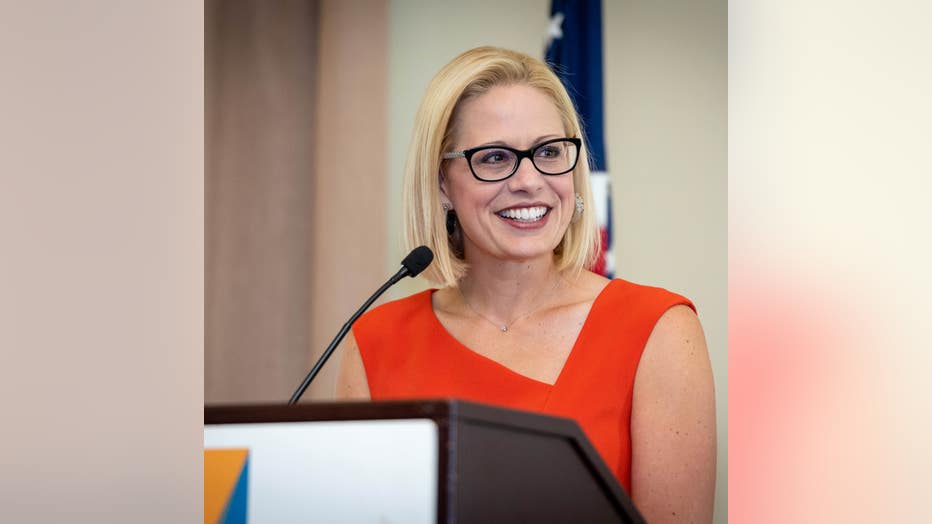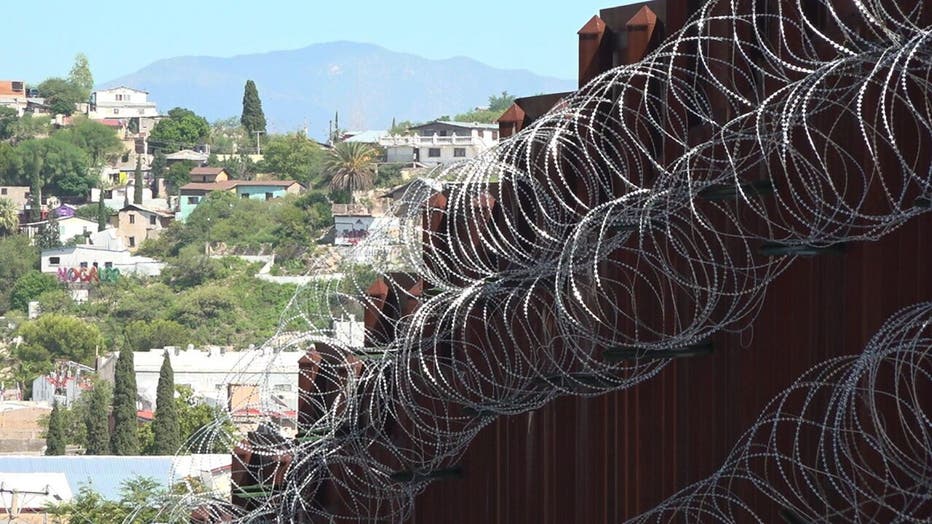Sen. Kyrsten Sinema talks microchips, border issue during visit with business, government officials in Arizona

Sen. Sinema calls for more federal help at the U.S - Mexico Border
While Arizona's senator says there's a need for troops at the border to combat an increase in migrants, some border county sheriffs disagree that more troops are needed.
PHOENIX - On May 5, Arizona Senator Kyrsten Sinema was in town to talk about various problems that the country is currently facing.
Microchips

Kyrsten Sinema (file)
Sen. Sinema met with Intel officials, as well as officials with the City of Chandler and leaders from other major microchip companies in Arizona for a discussion over the shortage of semiconductors.
Semiconductors, better known as microchips, impacts smartphones, cars, and national security, and recent chip shortages have been widely reported.
Related: Car shoppers feeling the pinch from COVID-19 due to global computer chip shortage
In Arizona, Intel recently announced a $20 billion expansion, with two new factories in the works. Meanwhile, Republic of China (Taiwan)-based company TSMC plans to build a $12 billion semiconductor factory.
The meeting on May 5 came a little more than a month after Sen. Sinema's Chips For America Act was passed. The law's goal is to help increase microchip manufacturing on American soil, instead of relying on foreign countries. Sen. Sinema says a reliable supply chain domestically is crucial in a global shortage, and she wants Arizona to lead the way. In addition, Sen. Sinema says Intel's expansion does not only mean thousands of jobs within the company and construction, but a ripple effect of employment.
"You're not just hiring high-skilled people who will work inside that factory, creating those semiconductors. You're also hiring construction workers who will build the facilities, but you’re also hiring more teachers, more restauranteurs, more people in the community to provide services for that facility, and for the folks who will move here to have those high-paying jobs inside a semiconductor manufacturing facility.," said Sen. Sinema.
U.S. - Mexico Border

Even though we’re in the middle of a pandemic, CBP officers say meth seizures have nearly doubled this year compared to last. High demand in the U.S. and closed borders have increased the prevalence and price tag. (Stephanie Bennett/Fox News)
Earlier in the day, during a meeting with the Arizona National Guard, Sen. Sinema also said that more needs to be done by the Federal Government to deal with the situation at the border.
Currently, at least 500 National Guard members have been sent to the Yuma and Tucson sectors to help, as local authorities are overwhelmed by the increasing number of migrants.
Related: Arizona Governor deploys National Guard to US-Mexico border
Sen. Sinema, who recently backed Arizona Governor Doug Ducey's deployment of the National Guard to the southern border, has introduced a bill with Texas Republican Senator John Cornyn to address the situation.
The bill would ask President Joe Biden's administration to create regional processing centers along the border, in an effort to ensure that migrants are treated humanely, while protecting border towns from the strain on resources.
"And create practical solutions that would disincentivize coyotes who are bringing migrants from other countries to our border," said Sen. Sinema
While some have called the border situation a crisis, others, like Pima County Sheriff Chris Nanos and Santa Cruz County Sheriff David Hathaway, disagreed with such an assessment.
Related: Sheriffs with 2 Arizona border counties say there is no crisis at the US-Mexico Border
"We have no migrant crisis at the border, but there’s lots of fuzzy math going around," said Sheriff Hathaway in late April.
"Whether it's a crisis in their neighborhoods, I can’t speak to it, but it’s not a crisis right now for Pima County," said Sheriff Nanos.
"It’s clear that not enough is being done," said Sen. Sinema. "Arizona is bearing the brunt of this crisis because of the Federal Government's failure to address immigration issues over the last three decades."
Sen. Sinema, along with Sen. Mark Kelly, have written a letter to President Biden, supporting Gov. Ducey’s request for the Federal Government to reimburse the state for the cost to deploy the guard
"We haven’t yet heard from the Biden Administration, but we continue to call on them for the urgency of the crisis we face."

